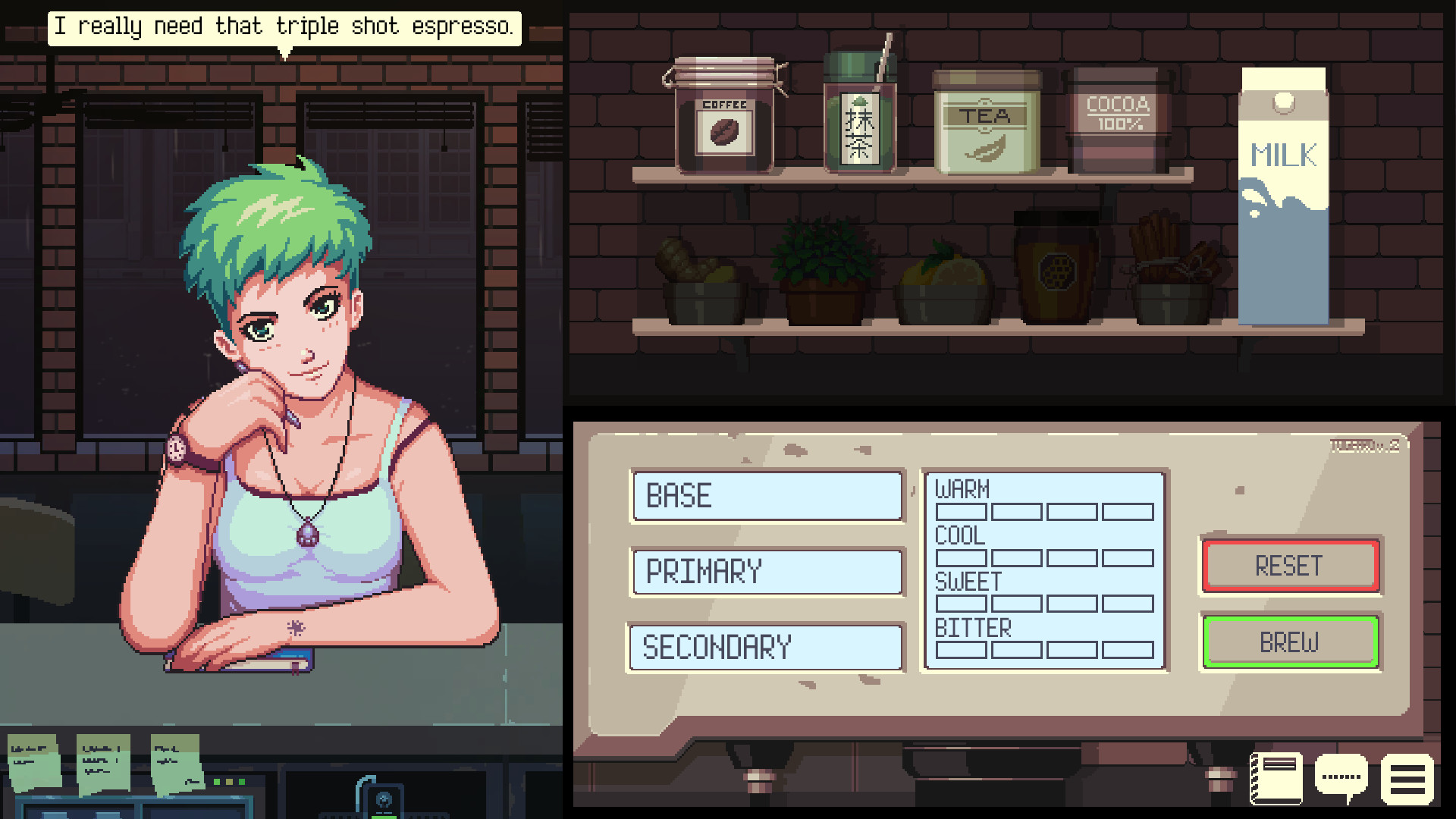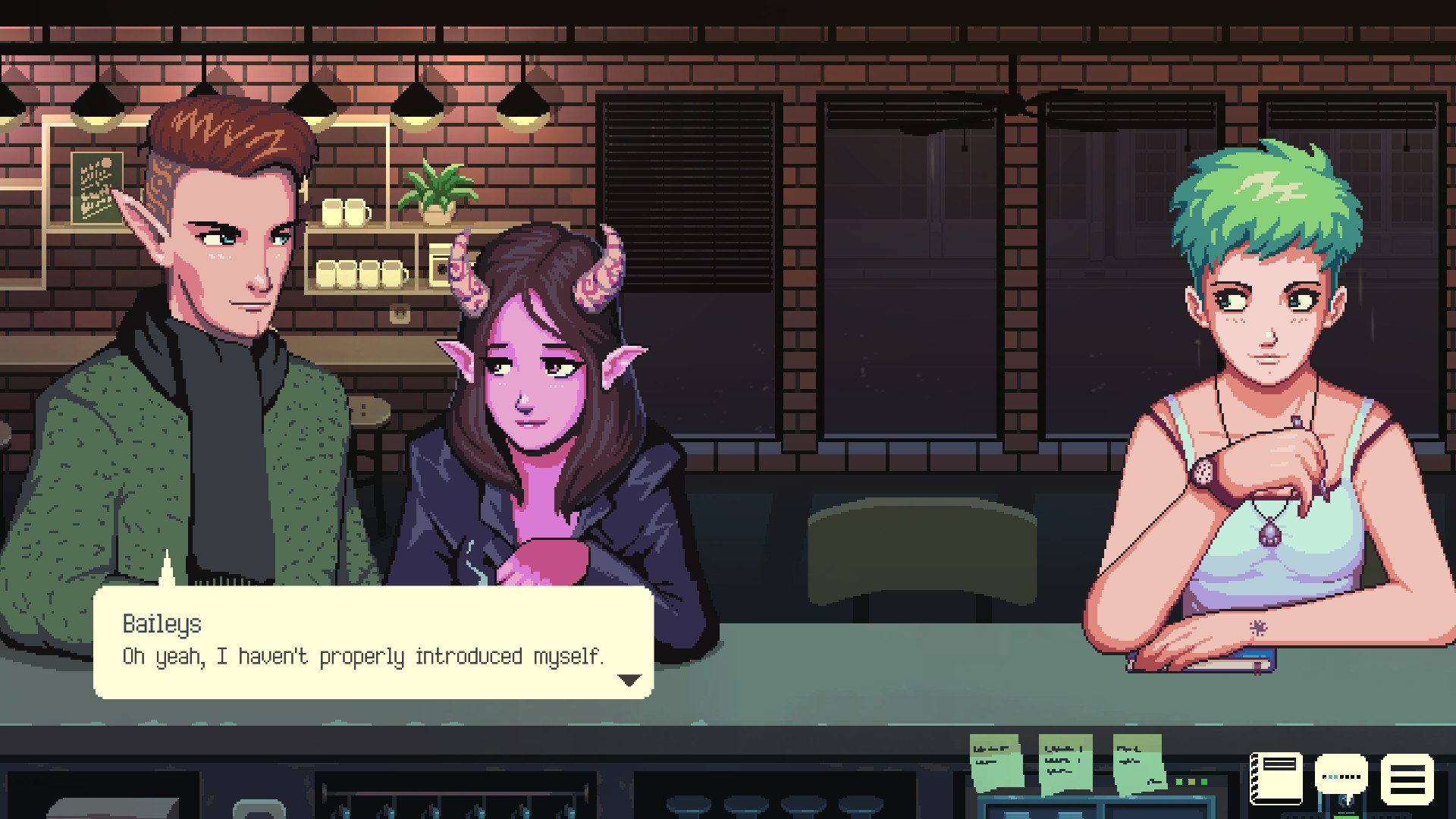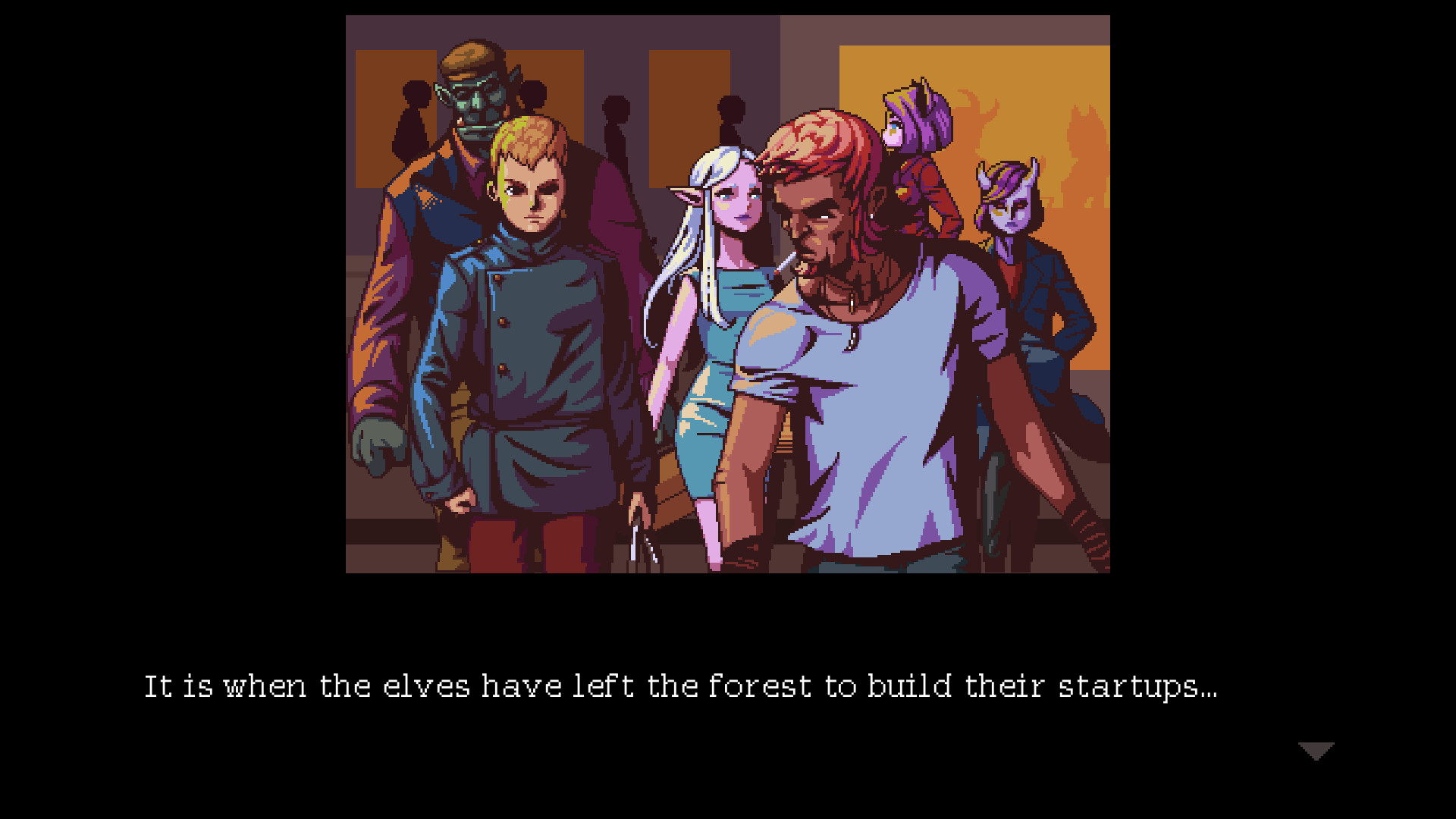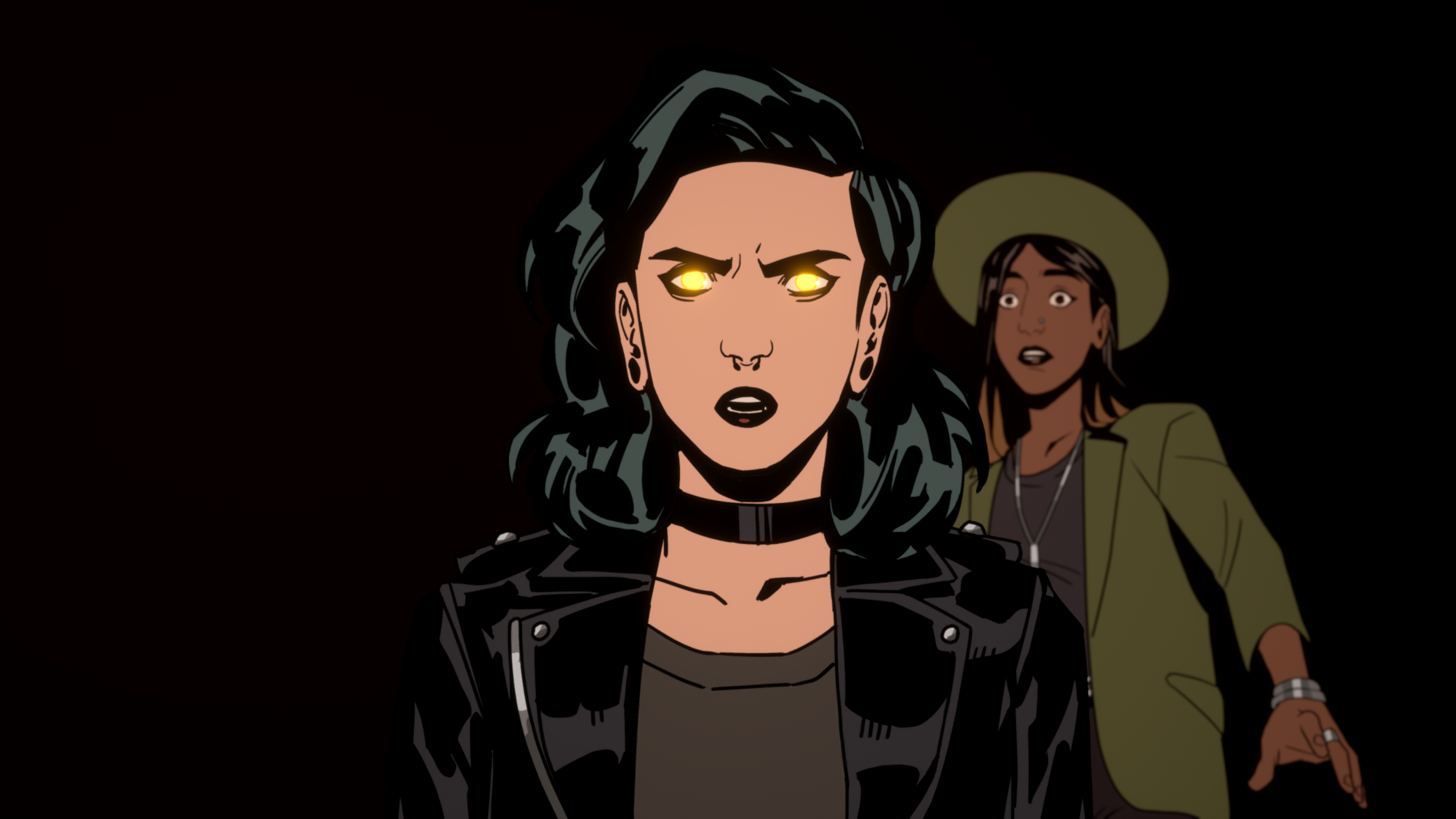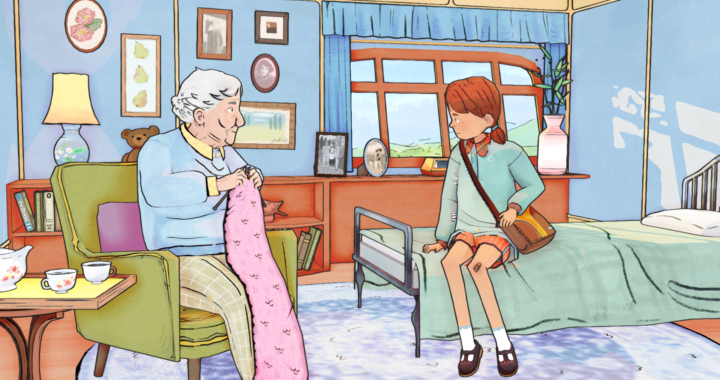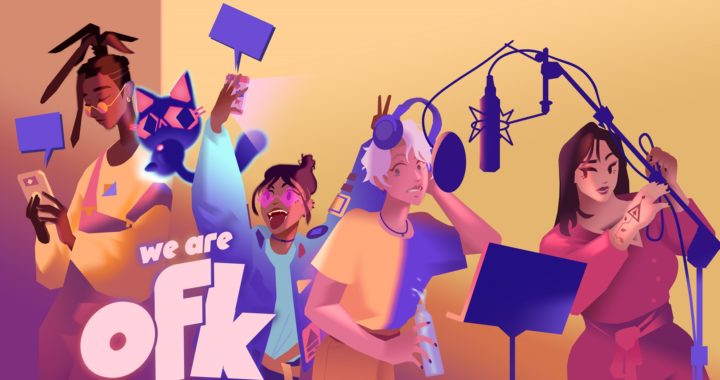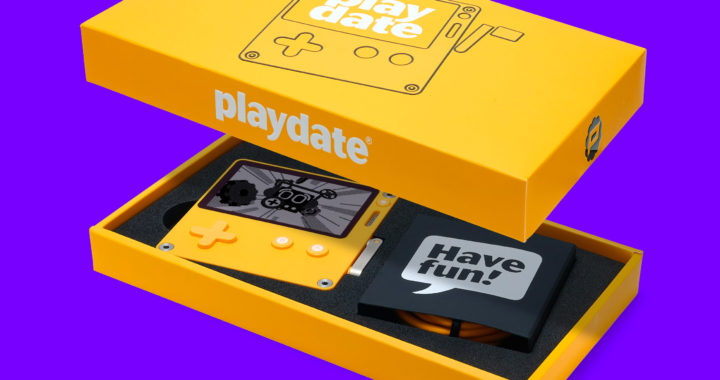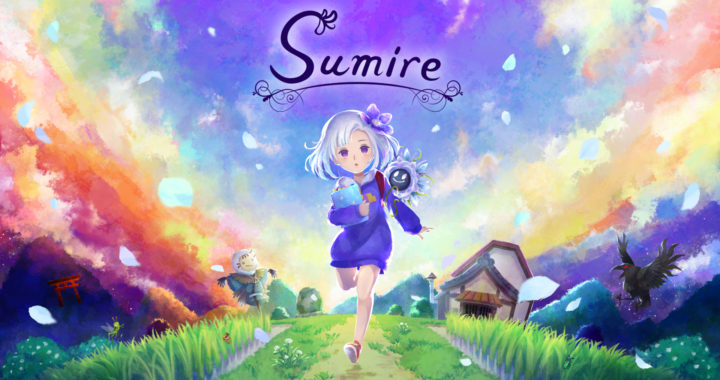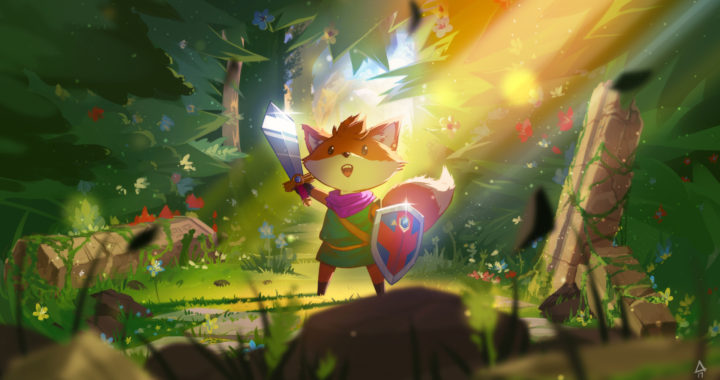
Review: Coffee Talk
Coffee Talk is a visual novel made by Toge Productions (the same team behind Necronator: Dead Wrong and Rising Hell), set in Seattle, where you play as a barista who runs a nighttime coffee joint set in a fantasy universe with all kinds of creatures from vampires to merpeople. These customers all have their own issues and come here to get away. The story mainly revolves around one of your regular customers, Freya, an aspiring journalist working on her first novel. She listens in to one of your customer interactions and realizes that she wants to base her book on the coffee shop, and the people who come here to tell their stories, but the twist is that they’re all human.
Besides listening to conversations and hearing about the customers’ problems, you also have to make drinks. You’re given a set of ingredients from the start, and throughout the game, more ingredients are added. The basics of drink making are to choose 3 ingredients, and blended together they will make a specific beverage. You learn as you go which combinations make certain drinks; for example, Freya’s usual is an espresso, and you hit “Coffee” three times to make her drink. You have a lot of basic coffees and teas available, but you can also make fun things like a werewolf potion for a returning customer to keep them out of “Fury”. You can also make latte art on any foam drink by using the triggers on the Joy-Cons; which I was extremely terrible at, yet did it every time because it felt nice and none of the customers complained about it.
There are no severe consequences in this game for getting drinks wrong. The customers will tell you it’s not the right drink, but they will still drink it and come back. You do lose out on some dialogue if you mess the drink up, but you’re free to replay each day and get it right. There is also a fast forward option for replaying days so that you don’t get bogged down by dialogue. You’re also encouraged to replay after the fact so you experience new dialogue and a twist of events.
I thought that the pixel art style in Coffee Talk was charming. Similar to the drinks, the colorfulness and uniqueness of every character gave flavor to what the game offered. The people were designed to be super bright and saturated, completely the opposite of the style of the coffee shop, which was very warm toned. These colors contrasted well not only in game, but also in the theme of these vastly different creatures in this plain coffee shop. I related the warm tones with the barista that I played as, which I felt was juxtaposed well with the colorfulness of the people I met each day. You also can check out a gallery in the main menu to find additional art assets created around the shop and the characters that get unlocked as you play.
In my opinion, what Coffee Talk excels in the most is its relatable story telling. It brings up many daily obstacles including family issues, healthcare, immigration, burnout, crunch, etc. Each person who walks into your shop has their own life and their own problems they face, and it’s your job to make them feel comfortable enough to let you in. Not only are you making their drinks, you’re giving them a space to vent and work through their problems. The game has taught me a lot about patience, which I struggle with. Everyone we interact with has a different path they’re on. We can take the time to be patient with one another and learn these paths, or we can continue about our day and mind our business. This game also made me want to become a regular at a local coffee shop, just to be a little nosy.
The best parts of this game are when you aren’t responding to the characters, but listening to them interact. Coffee Talk shows people of different cultures sharing their experiences, sometimes in an uncomfortable way. The most intriguing part for me is said by a character in response to Freya telling him about her book. She tells him that it’ll be based on only humans, and he said that it wouldn’t make sense because they wouldn’t have as many problems since they’re all one human race. She points out to him that she thinks the humans will still relate because of background, skin color, religion, etc. The point is how we are all vastly different from our life experiences, but so much the same in our genetic make-up.
I think the most important takeaway is that yes, we are all human but similar to these completely different races and species in-game, we all live different lives and our shared experiences will always be different. Yes, it would be nice to believe that since we are all human, our lives would be somehow less chaotic than these characters, but the world isn’t made to be that simple. No, we aren’t drinking blood or turning into werewolves during a full moon, but your life is affected by where you are from and how the world sees you from their own lenses. Every day in-game there is a newspaper article that you can read before starting the next chapter. These will have headlines that hint to what is going on in the world around them. Similar to the way we are looked upon based on the way that the media portrays specific readers.
Overall, I enjoyed my time with this game. It wasn’t challenging or overly thought-provoking, but it was relaxing and made me really listen to the people I was interacting with. I found myself constantly rooting for these characters to succeed and work their issues out, and I was eager to get to the credits and see how things resolved. I vibed with the soundtrack the entire time, so I found it on Spotify so I can listen to it when I’m working. I also enjoyed that it broke the fourth wall a lot, which again made the story entirely relatable and interesting to play through. Within the 15 days of gameplay, I memorized my regulars’ drinks and learned how to make new ones by using context clues. In my opinion, Coffee Talk is a great game for traveling long distances because it feels like getting lost in a book, but instead of just reading, I’m making the characters delicious drinks.
This game was reviewed on Nintendo Switch using code provided by the developer.
